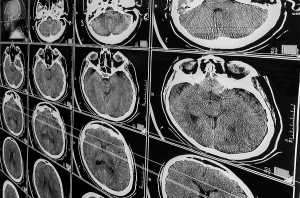by
John R. Fischer, Senior Reporter | October 21, 2020

A system used at Harvard Medical School has reduced the number of unscheduled imaging orders in its radiology department by nearly 50%
Harvard Medical School’s radiology department has tamped down the number of unscheduled imaging orders it sees by almost 50%.
The credit for this achievement goes to the institution’s System for Coordinating Orders for Radiology Exams (SCORE), a solution designed to detect and manage orders, both completed and uncompleted. Radiologists at the Ivy League school say it is a backstop for patients who are unable to cancel or complete their imaging work on time.
“Monitoring these orders to completion can be complicated and labor intensive,” Dr. Ronilda Lacson, M.D., Ph.D., director of education with the Center for Evidence-Based Imaging at Brigham and Women’s Hospital, and her colleagues, wrote in a study on the system’s efficiency. “Nevertheless, addressing these unscheduled orders is essential to patient safety. SCORE is meant to provide a ‘safety net’, providing a redundant system to assist care coordinators in ordering and scheduling appropriate tests.”



Ad Statistics
Times Displayed: 78095
Times Visited: 2768 Ampronix, a Top Master Distributor for Sony Medical, provides Sales, Service & Exchanges for Sony Surgical Displays, Printers, & More. Rely on Us for Expert Support Tailored to Your Needs. Email info@ampronix.com or Call 949-273-8000 for Premier Pricing.
Researchers found that the use of SCORE over nearly two years led to a 49% reduction in unscheduled orders. Prior to its use, Harvard Medical Center had 52,204 unscheduled orders (8.6%). This dropped to 20,900 (4.4%) after its implementation.
The system deploys care managers to monitor all imaging orders daily to ensure they are resolved. This is how it tracks all patients with scheduled radiologic exams ordered for acute or episode care, as well as ongoing disease management, and identifies orders that have not been completed.
Statuses are assigned to each exam, including performed, scheduled, canceled or expired. Those that have expired are reported to providers via an electronic alert so they can be reordered, if needed. If a patient cannot be reached after three times, the order is deferred for 28 days, with a letter sent to the patient. If the patient is still unreachable, the order is canceled and the provider is informed.
In a random sample, the solution sorted orders as cancellation (57%); expiration (21%); scheduling (1%); and performance (11%). Roughly 32% of cancellations and 27.7% of expired orders were deemed clinically necessary, and were attributed to scheduling and patient-related factors. Of performed imaging exams and scheduled exams, 98% and 83.3%, respectively, were deemed medically necessary.
“This is reassuring because inappropriate diagnostic imaging is a national concern given the wide variation in high-cost imaging utilization,” wrote the authors.
The findings were published in the
Journal of the American College of Radiology.
Back to HCB News

